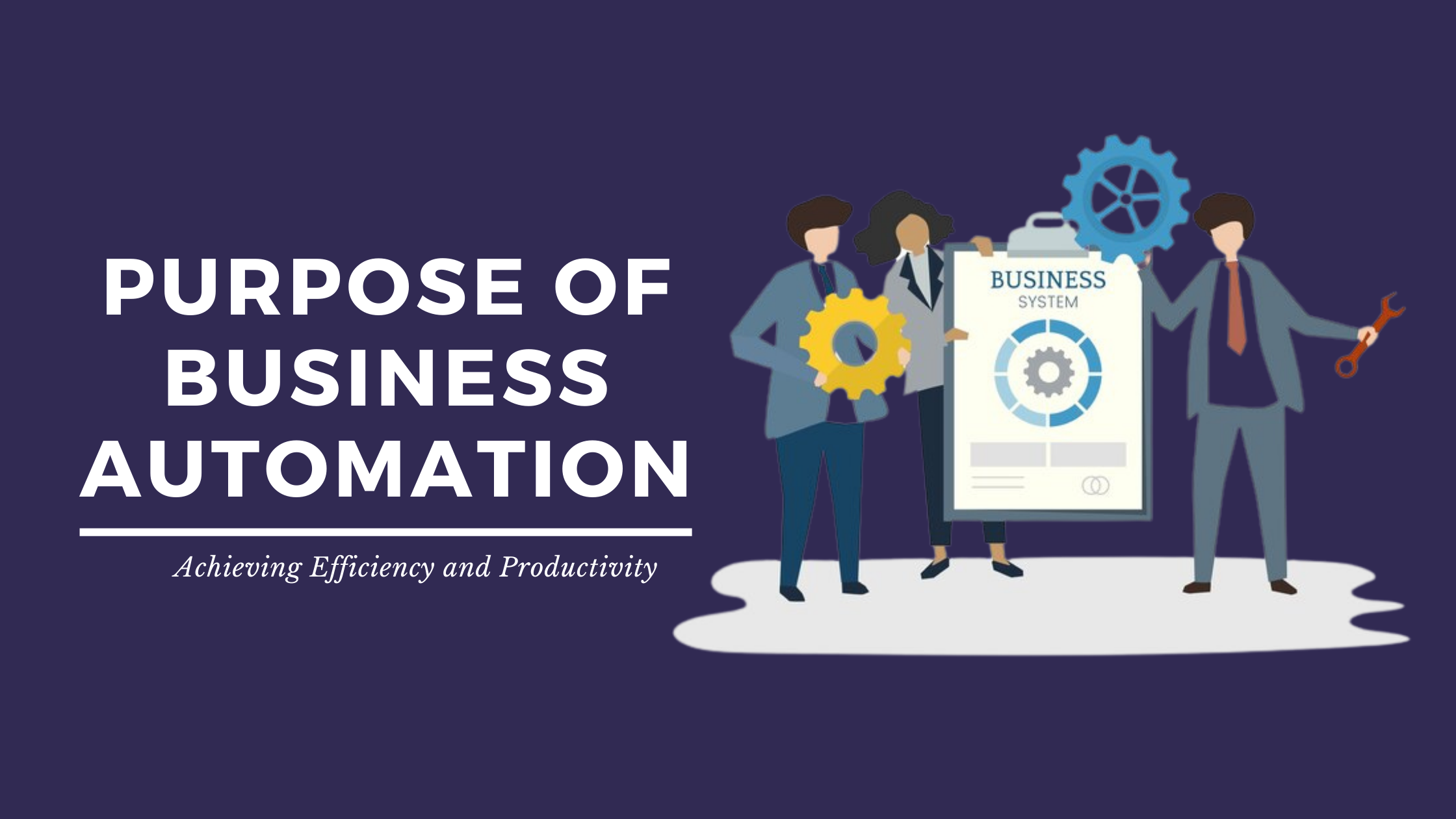Purpose of Business Automation: Achieving Efficiency and Productivity
-


Purpose of Business Automation: Achieving Efficiency and Productivity
In the modern business landscape, efficiency and productivity are the driving forces behind success. One way businesses are achieving these goals is through the use of Software as a Service (SaaS) products, particularly those designed for business automation. This article will explore the purpose of business automation and highlight some relevant SaaS products that can help businesses achieve greater efficiency and productivity.
What is Business Automation?
Business automation is the use of technology to execute recurring tasks or processes in a business where manual effort can be replaced. It is done to minimize costs, increase efficiency, and streamline processes.
The Role of SaaS in Business Automation
Software as a Service (SaaS) has emerged as a leading technology in business automation. SaaS products are typically easy to implement, cost-effective, and offer robust features that can automate various business processes. Here are some SaaS products that are making waves in the business automation space:
- Microsoft Teams1: A collaboration tool that brings together chat, meetings, calling, and Office 365, all in one place.
- Zoom1: A video conferencing tool that provides a platform for hosting webinars, conducting online meetings, and creating virtual conference rooms.
- AWS1: Amazon Web Services offers a broad set of global cloud-based products including storage, databases, analytics, networking, mobile, developer tools, management tools, IoT, security, and enterprise applications.
- Trello2: A project management tool that helps teams work more collaboratively and get more done.
- JIRA1: A software development tool used by agile teams to plan, track, and release software.
- AlignBooks1: A business accounting software that manages your financial accounts, inventory, sales, purchase, and data security.
- FactoHR1: An HR and payroll software that provides solutions for time tracking, attendance management, employee self-service portal, travel expense management, and more.
- Zoho CRM1: An online customer relationship management software for managing your sales, marketing, and support in a single system.
- HubSpot3: A comprehensive suite of tools and features that empowers businesses to streamline their operations, automate repetitive tasks, and optimize their marketing and sales processes.
- Salesforce4: A customer relationship management solution that brings companies and customers together.
- Pipedrive5: A CRM and pipeline management tool that helps you focus on actions that matter.
- LinkedIn Sales Navigator6: A sales tool that provides features like lead recommendations, CRM integration, real-time sales updates, and more.
- Outreach7: A sales engagement platform that helps sales teams secure more meetings, drive more pipeline, and close more deals.
- UserGems8: A platform that tracks job changes of your most valuable buyers and automates the next steps.
Conclusion
Business automation is no longer a luxury but a necessity in today’s fast-paced business environment. By leveraging SaaS products, businesses can automate their processes, thereby increasing efficiency and productivity. Whether it’s project management, sales, marketing, or customer service, there’s a SaaS product out there that can automate it. The key is to identify the areas in your business that need automation and find the right SaaS product that fits your needs.








